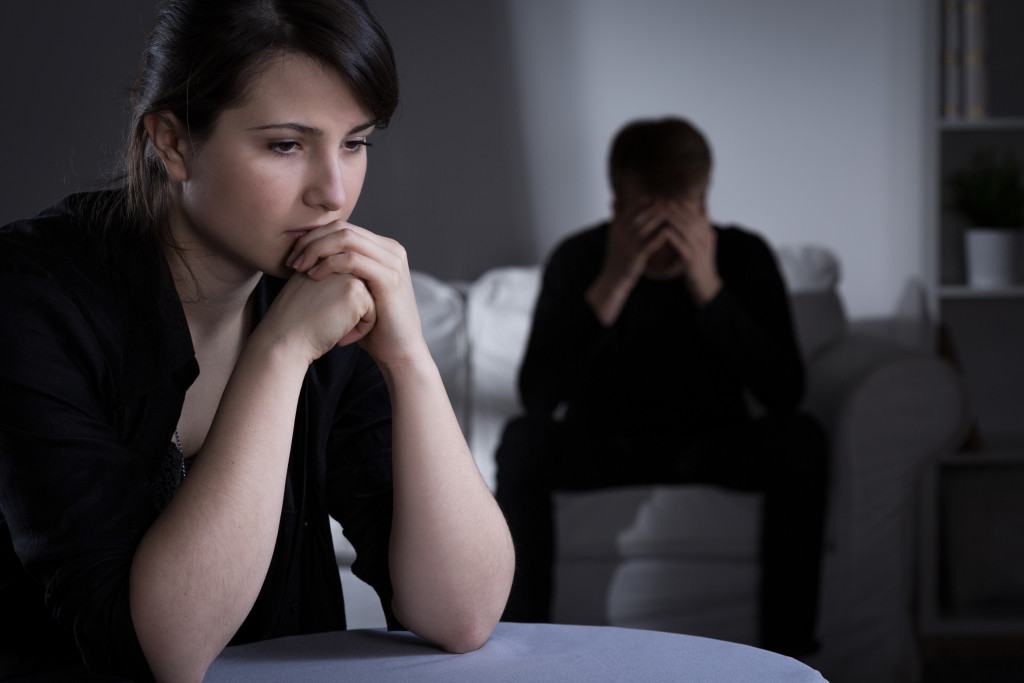The psychology of emotions is a fascinating topic. When people experience a feeling, what is precisely happening in their brains?
Some experts believe emotions result from chemicals in people’s brains. For example, when people feel happy, their brain releases dopamine, serotonin, and endorphins. These chemicals create feelings of pleasure and well-being.
Other experts believe that emotions are more complex than that. They think people’s emotions result from their thoughts, experiences, and biology. Their thoughts and experiences can shape how people react to different situations and how they experience other emotions. These two main approaches when explaining emotions are crucial to understanding one complex emotion known as sadness.
What is Sadness?
Everyone has experienced sadness before. It’s a common emotion people feel in response to different life circumstances, such as losing a loved one, getting fired from a job, or experiencing heartbreak.
Sadness is more than just feeling down or upset. It’s a complex emotion that can significantly impact a person’s life. People may feel hopeless, helpless, and worthless when they are sad. They may also have difficulty concentrating, sleeping, and eating. In addition, sadness can lead to physical problems such as headaches and stomachaches.
When people are going through a tough time, they may withdraw from friends and family. They may stop doing activities they once enjoyed. In severe cases, sadness can lead to suicidal thoughts or attempts.
Causes of Sadness
There is no one cause of sadness. It can be triggered by a life event, such as the death of a loved one, or it can be caused by an ongoing problem, such as depression.
Some people are more vulnerable to sadness than others. This can be due to genetics, brain chemistry, or early childhood experiences. For example, people with a parent with depression are more likely to experience depression themselves.
Certain medical conditions can also cause sadness. These include hypothyroidism and Addison’s disease.

Sadness and Depression
Some people tend to mislabel sadness as depression. While sadness and depression share common symptoms, they are two distinct emotions. Depression is a more severe condition that can significantly interfere with a person’s life.
Major Depressive Disorder (MDD) diagnoses people who experience a depressed mood for two weeks or longer. MDD has the symptom of severe sadness, but it’s only one symptom. Other symptoms cover MDD such as fatigue, low energy, weight changes, and difficulties with concentration and sleep. So most of the time, sadness is associated with depression, but depression is not always associated with sadness.
Think of it this way, sadness is an emotion, while depression is a disorder. They are two different entities that can happen to a person.
How to Deal With Sadness
Dealing with sadness doesn’t have to be complicated, but it does require some learning. One of the best ways to deal with it is to let it happen.
Let it Happen
Fighting your emotions can be a severe problem in the future. It can form mental disorders and make it harder for you to cope. For example, a family that has lost a loved one must grieve. Although individuals within the family grieve in their way, all of them must experience the sadness of losing someone. If not, experts suggest hiring an experienced bereavement service to help out. The service can help the family cope with the loss and help them grieve and feel the sadness in their body. By doing this only, a family can truly move on.
Letting sadness happen is one of the best things you can do. It allows you to process the emotion and eventually move on from it.
Talk to Someone
If you’re struggling to deal with your sadness, talking to someone can be a great way to get some support. This could be a friend, family member, therapist, or counselor. Talking about your sadness can help you understand it better and find ways to cope.
Do Something You Enjoy
When you’re feeling sad, it’s essential to do something that makes you happy. This could be anything from reading a book to walking in nature. Doing something you enjoy can help boost your mood and make you feel better.
Exercise
Exercise is a great way to deal with sadness. It releases endorphins, which have mood-boosting effects. Exercise can also help reduce stress and improve sleep.
Get Enough Sleep
Sleep is vital for managing sadness. When you’re tired, you’re more likely to feel down. Getting enough sleep can help you manage your sadness and improve your mood.
Eat a Healthy Diet
What you eat can also impact how you feel. For example, eating a healthy diet can help improve your mood and make it easier to cope with sadness.
Final Thoughts
Sadness is a normal emotion everyone experiences at some point in life. It can be caused by a life event or an ongoing problem. Some people are more vulnerable to sadness due to genetics, brain chemistry, and more. Thankfully, there are ways to deal with it. By following the different tips above, you can deal with sadness in no time.

